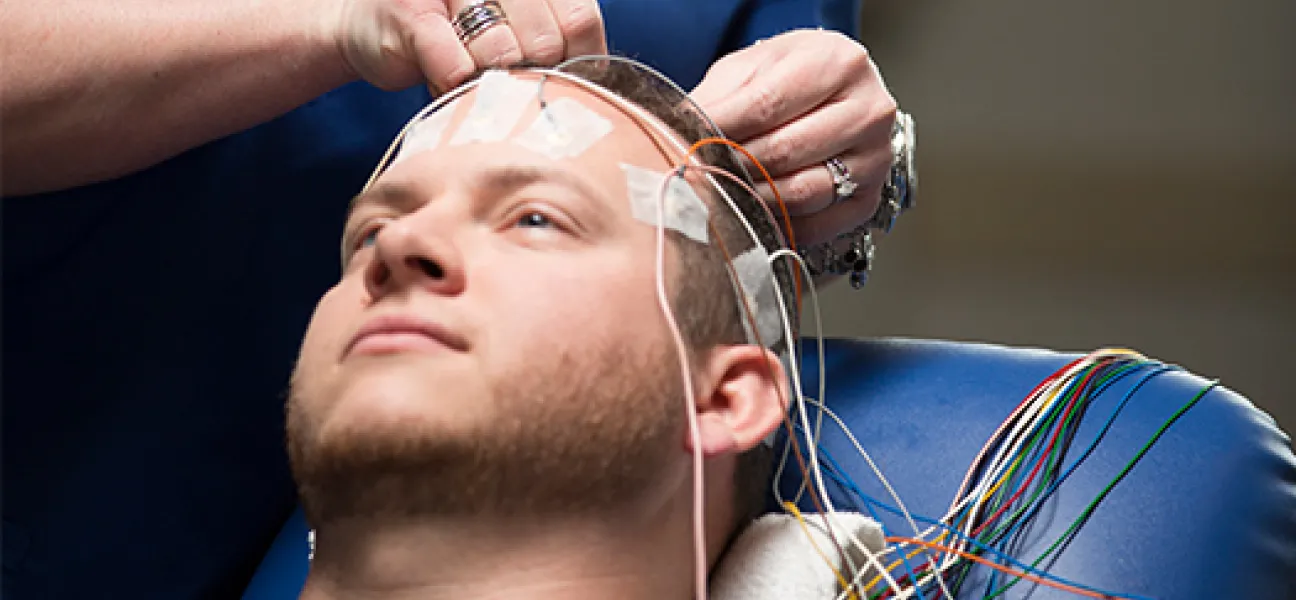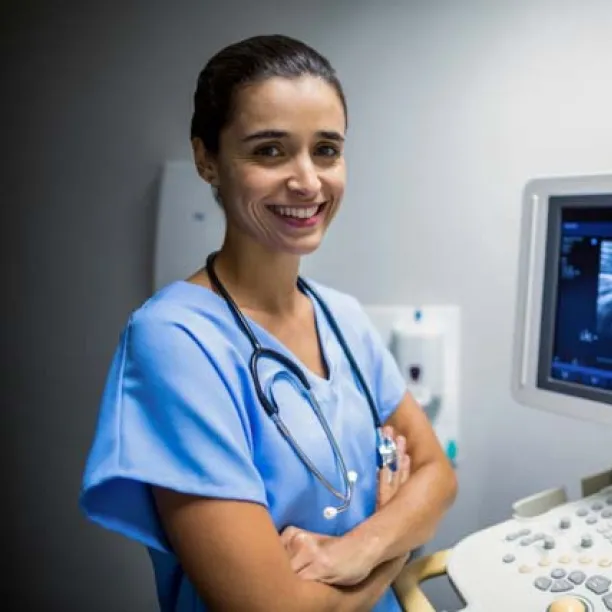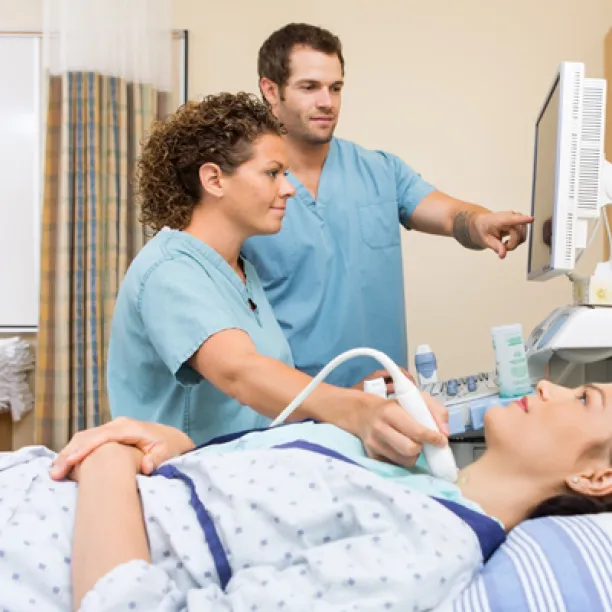Now Enrolling
Neurodiagonstic Technology Associate Degree Program
Concorde’s accredited Neurodiagnostic Technology associate degree program prepares you for hands-on training to use video and monitoring technologies, run tests to study brain/nervous system, electrode placement, and measuring brain responses. The NDT program is offered in San Bernardino, CA, Memphis, TN and Grand Prairie, TX.
Join our family
Have you been thinking about getting an associate degree in Neurodiagnostic Technology? Have you been searching for the right Neurodiagnostic Technology school near you? Your search ends at Concorde, where you can start training in our accredited Neurodiagnostic Technology program for an exciting future in this high-demand healthcare occupation.
Get Started
Campuses
Curriculum

Neurodiagnostic Technology (NDT) is the medical diagnostic field devoted to the recording and study of electrical activity in the brain and nervous system. Neurodiagnostic Technologists possess the knowledge, skills, and attributes to obtain interpretable recordings of patients’ nervous system function. They work in collaboration with medical researchers, clinicians, physicians, and other health professionals.
Neurodiagnostic Technology (NDT) is the medical diagnostic field devoted to the recording and study of electrical activity in the brain and nervous system. Neurodiagnostic Technologists possess the knowledge, skills, and attributes to obtain interpretable recordings of patients’ nervous system function. They work in collaboration with medical researchers, clinicians, physicians, and other health professionals.
Neurodiagnostic Technologists can be involved in one or more of the following diagnostic procedures:
- Electroencephalography (EEG)
- Evoked Potential (EP)
- Long-term Monitoring (LTM)
- Polysomnography (PSG)
- Nerve Conduction Studies (NCS)
- Intraoperative Neuromonitoring (IONM).
The Technologist takes the medical history; documents the clinical condition of patients; understands and employs the optimal use of EEG, EP, PSG, and NCS equipment; and applies adequate recording electrodes. Among other duties, the Neurodiagnostic Technologist also understands the interface between EEG, EP, PSG, and NCS equipment and other electrophysiological devices and procedures; recognizes and understands EEG/EP/NCS/sleep activity displayed; manages medical emergencies in the laboratory; and prepares a descriptive report of recorded activity for the interpreting physician.
The responsibilities of the Technologist may also include laboratory management and the supervision of Neurodiagnostic Technologists.
Considerable individual initiative, reasoning skill, and sound judgment are all expected of the Neurodiagnostic professional. Neurodiagnostic Technology personnel work primarily in neurology-related departments of hospitals, but many also work in clinics and the private offices of neurologists and neurosurgeons.
As a neurodiagnostic technologist, you can serve a vital role in health care. Concorde helps comprehensively equip you for this broad job scope through hands-on skills training and real-world clinical experiences.
The neurodiagnostic technologist program, helps students apply classroom knowledge from their first day on the job through an emphasis on the following areas:
- Video recording equipment and monitoring technologies
- Tests to study brain/nervous system
- Electrode placement
- Patient monitoring
- Measurement of brain response
As reported on 2024 CoA-NDT Annual Report: Program Outcome
Career Outlook
Where do Neurodiagnostic Technologists Often Work?
As a neurodiagnostic technologist, you may find career opportunities in a variety of health care settings including:
Operating rooms
Intensive care units
Emergency departments
Private clinics
Patient homes
Note: Concorde does not guarantee employment or subsequent salary.
Financial Aid
As part of our commitment to your success, Concorde ensures that you have access to comprehensive information and guidance in navigating the financial aid process. Concorde offers financial aid and scholarship programs to those who qualify.

Financial Aid
Get financial support for your education with our dedicated financial aid team by your side.
Review Your Options
Scholarships
Find the perfect scholarship for your health care goals based on your background, programs or other criteria.
Search ScholarshipsInstitutional Accreditation and Licensure
Accreditation and licensure are an important part of an academic institution’s operation.
Visit our Accreditations and Licensure page for more details about our accreditations and licensure.
CAAHEP
The Neurodiagnostic Technology program has been awarded continuing accreditation by the Commission on Accreditation of Allied Health Education Programs (CAAHEP), 9355 113th St. N, #7709, Seminole, FL 33775; 727-210-2350; https://www.caahep.org, as recommended by the Committee on Accreditation for Education in Neurodiagnostic Technology (CoA-NDT), 2206 Highland Ave, Morton, PA 19070; 223-666-5952; https://coa-ndt.org/.
Grand Prairie, TXSan Bernardino, CACAAHEP
The Neurodiagnostic Technology program in Memphis has been awarded initial accreditation by the Commission on Accreditation of Allied Health Education Programs (CAAHEP), 9355 113th St. N, #7709, Seminole, FL 33775; 727-210-2350; www.caahep.org, as recommended by the Committee on Accreditation for Education in Neurodiagnostic Technology (CoA-NDT), 2206 Highland Ave, Morton, PA 19070; 223-666-5952; https://coa-ndt.org/.
Memphis, TN
Frequently Asked Questions

Didn't find the answer to your question? Send us an inquiry and we will be happy to answer all your questions!
Contact us to find out when the Neurodiagnostic Technology program starts at a Concorde campus location near you.
For program-specific tuition information, please see the campus catalog.
For program-specific tuition information, please see the campus catalog.







